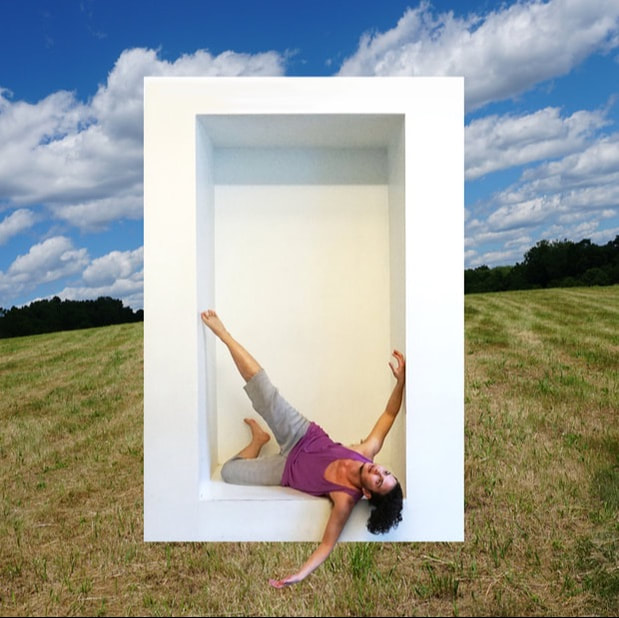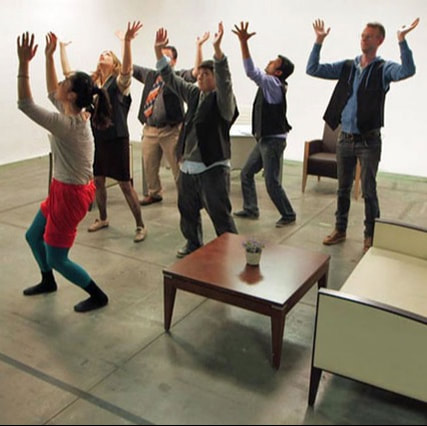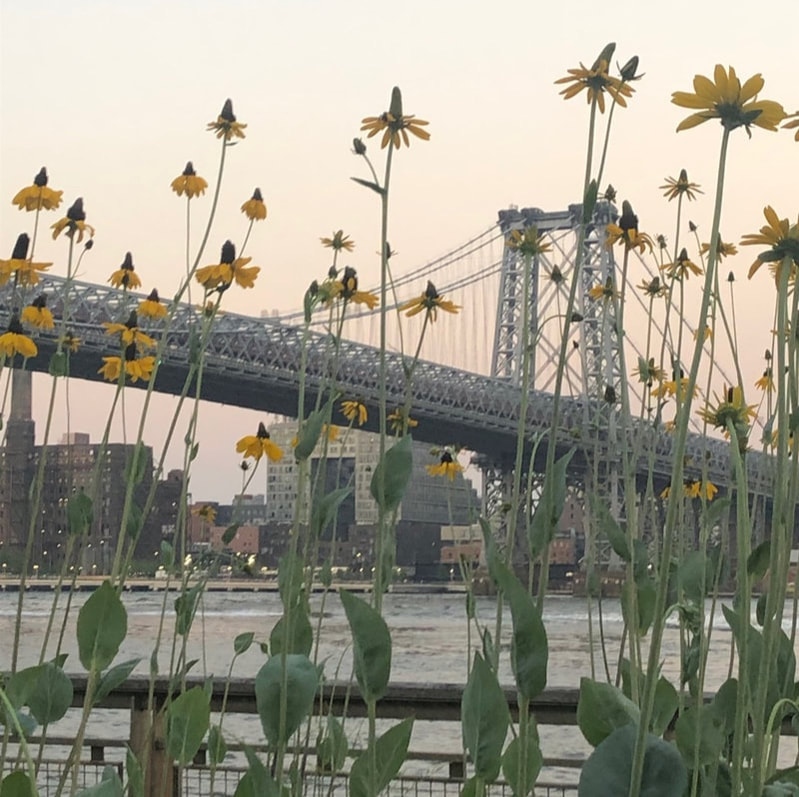The School of Making Thinking offers year round classes designed to bring rigorous thinking into conversation with experimental pedagogies.
LIMINAL
|
|
INSTRUCTORZavé Martohardjono is interested in performance that spurs embodied healing and radical thinking as pathways to decolonizing and de-assimilating the body and contending with the political histories it carries. They have performed at the 92Y, Bemis Center for Contemporary Art, BAAD!, Bronx Museum of the Arts, Boston Center for the Arts, Center for Performance Research, EFA Project Space, El Museo del Barrio, Gibney Dance, HERE Arts, Issue Project Room, Movement Research, Storm King Art Center, Wendy’s Subway, the Wild Project, WOW Café Theater, and elsewhere. Zavé is a 2019 Movement Research Artist-in-Residence and previously has been in LMCC's 2017-2018 Workspace Residency, the Bronx Museum’s BxMA Co-Lab Residency, Shandaken: Storm King, Gibney Work Up 3.0, and Chez Bushwick residency. Zavé has worked in social justice for over a decade and organizes with artists of color through Potluck Project.
|
LIMINAL BODIES: INTERNAL PRACTICES FOR UNWINDING EMPIRELIMINAL BODIES centers movement exercises, encourages participation and expression, works to build decolonial and radical political thinking, and makes room for communication and care among participants.One core component for the course are weekly readings that span activist texts, essays on decoloniality and the undercommons, research on the colonization of global South dance practices, and queer, Black, feminist texts. These readings serve to build a shared language among participants with which to consider settler colonialism and histories of resistance to empire.
The readings also provide a framework to inform and enrichen participants’ responses to the second component of the course—embodied practice. LIMINAL BODIES offers a range of dance and theater modalities through which to consider the body’s relationship to power and empire. These include Authentic Movement, Butoh, contemplative and releasing movement techniques, and political theater work. Participants will develop listening systems to identify assimilated and conditioned habits in the body and explore the potential to undo colonization in the body, tapping into embodied ancestral technologies and knowledge. Physical activities are adapted to meet every participant’s mobility needs so that all levels of experience and familiarity with dance are accommodated. October 1st – November 19th 2019
8 Sessions Tuesdays 7-9PM $235 |
INSTRUCTORAaron Finbloom is a philosopher, performance artist, pedagogue and co-founder of The School of Making Thinking (SMT). His work involves designing performative “conversation pieces” for transformative inquiry that seek to aesthetically expand the scope of philosophical, academic and psychotherapeutic pedagogies. Finbloom has presented these works internationally at venues which include: The Museum of Contemporary Art in Chicago, Gallery 151 (New York), Maschinenhaus Kulturbrauerei (Berlin), UNAM (Mexico City), and MainLine Theatre (Montreal). Finbloom has taught philosophy at Suffolk County Community College and has curated dozens of interdisciplinary courses, workshops and residency sessions for SMT. He is also an amateur practitioner of a number of relational practices including Gestalt Therapy, Group Relations Conferences, Drama Therapy, Developmental Transformations, and has undertaking training in (and facilitated groups) in Circling and Psychodrama, He holds a PhD in Interdisciplinary Humanities from Concordia University (Montreal), and an M.A. in Philosophy and Art from SUNY Stony Brook.
|
SCORING FOR OTHER SYNTAXES: CONVERSATION, TRANSFORMATION, PLAYThere are massive differences among us that actually have to make us pause before we assimilate another person’s experience into our own structures for understanding things. And sometimes we have to allow our own structures to be challenged and undone by an experience we are asked to listen to... Really listening to what someone else is suffering is, or to what someone else’s desire is, or to what their aspiration is, sometimes means a disorientation from one’s own framework. It is almost like learning another language, or entering another syntax...That is like becoming undone in the service of another. And that is what I think ethical responsiveness should look like. –Judith Butler
Conversations are transformative – from political summits to courtroom legislation, from heated discussions with a loved one to insightful talks with therapists. Yet, those who design these conversational structures also yield tremendous power – political, social, psychological, spiritual. To change the way we talk (our rules, grammars, syntaxes, gestures and intonations) can change the way we think and feel; it can literally change our world by re-attuning how we relate to it, each other and ourselves. In this course, we will play in the field of designing conversation practices using scores, choreographies, games and linguistic techniques to construct conversations that can respond to pervasive problems within our selves, communities and World. Each class will explore (theoretically and experientially) a different conversation practice. Practices include: myth and storytelling, Socratic dialogue and Zen Tibetan debate, confessionals, Quaker meetings, psychoanalysis, circling (authentic relating practice), psychodrama, invisible theatre, and the works artists such as Tino Sehgal, Danielle Aubert, Alessandro Bossetti. Alongside these structured explorations of practices, students will also analyze and make scores out of specific conversations they feel to be formative, vital or important. This material will be fodder for each student to construct a unique conversation structure/score that serves personal or political needs (for example, a score that expresses one’s manner of thinking, or poignantly addresses a political problem, or fosters an embodied, authentic feeling-talking). Classes will involve: brief lecture, performative activation of conversation practices, short readings assigned related to a given practice, collective conversation about these practices (sometimes using the practice itself to have the conversation), student presentations, and collective score-making and performing. October 2nd – November 20th 2019
8 Sessions Wednesdays 7-9PM $235 |
INSTRUCTORMarcella Durand's forthcoming books include The Prospect from Delete Press (Summer 2019) and a new collection from Black Square Editions (Fall 2020), along with her translation of Michèle Métail's book-length poem, Earth's Horizons (Fall 2019). Other publications include Rays of the Shadow (Tent Editions, 2017) and Le Jardin de M. (The Garden of M.), with French translations by Olivier Brossard (joca seria, 2016), Deep Eco Pré, a collaboration with Tina Darragh (Little Red Leaves); AREA (Belladonna); and Traffic & Weather (Futurepoem), written during a residency at the Lower Manhattan Cultural Council. She has taught classes and delivered talks on the potential intersections of ecology and poetry at Naropa University, the Poetry Project and Poets House, with related essays appearing in The Ecolanguage Reader, jacket2.org, Ecopoetics, Conjunctions, NYFA Current, HOW(2), Critiphoria, and other forums. Her long poem, "The Anatomy of Oil,"; included in the titled art exhibition at GasDot Gallery and was recently performed at sites of oil production in the Los Angeles area. She can see the East River from her apartment in the Lower East Side in New York City, where she works and lives with her husband and son.
|
THE ECOLOGY OF POETRYPoetry can be a laboratory for the first creation of language to describe and explore evolving ideas, concepts and situations—including climate change and ecological disaster. I propose this class to be a poetry and poetics discussion lab centered around speaking of, writing about, thinking into ecology and environment, with the hope toward creating an original space of change. Depending on the ability level of participants (first class will be an assessment of student needs and expectations), we will formulate field trips and writing-into- place/site-specific exercises—one of these may include nearby East River Park, which is currently central to a community debate of flood control, and the Lower East Side Ecology Center; we will discuss accessible and equitable ecopoetics that include social justice and disability, as well as what an urban and local ecopoetics can look like.
October 3rd – November 21st 2019
8 Sessions Thursdays 7-9PM $235 |



